Analyzing risks, rewards of AP classes
AP PHYSICS, A WEIGHTY SUBJECT: Juniors Hannah Zuniga, Lindsey Plotkin, Darian Dieterich and Tres Tanner complete a hands-on lab, in which the task was to use the skills they’d learned in trigonometry to solve for the mass of the car. “The lab was really interesting,” Tanner said. “Physics is a fun class; I will be taking the AP test.” Photo by Bella Kisler.
December 4, 2019
If you’ve ever walked into Thunderbird or Monkeys Nest on a weekday in late April, chances are you’ve seen groups of McCallum students huddled around textbooks, frantically memorizing keywords and definitions, or slaving away over practice tests. This is because every year around this time, students begin gearing up for the annual round of AP tests. With so many McCallum students dedicating their lives to doing well on this test, it begs the question … why?
“The nice thing about the AP program is it allows you to deal with more rigorous content in the subjects that you want to pursue,” said James Hutcheson, a first-year English teacher at McCallum. “Sometimes its like ‘I’m really not that interested in English. I’ll take an academic level English class,’ Or ‘I’m not really that interested in history or math or science. I’ll just take an academic level class in that subject, so I can save myself a little work, so I can go pursue music or other things.’”
In addition to allowing students to pick and choose what they want to focus on, the AP program offers three major benefits to the students who choose to take them.

Photo by Javier Vela.
First, if you score highly on an AP test, it could mean that you won’t have to take the class in college, which could save you a lot of money farther down the line.
Second, AP classes can help increase your GPA. AP classes are graded on a five-point scale, as opposed to on-level courses, which are graded on a four-point scale. This means that while AP classes are much more rigorous, if you do well in them academically, it can do wonders for your GPA. Your GPA determines your class rank and can help you figure out how you compare to the standards of the colleges that you are looking into.
Finally, you can get used to the college level courses before you go to college. This can help your chances of successfully adapting to a college setting.
But these benefits come with disadvantages as well. You won’t get any credit if you don’t pass the class. A failing grade won’t help your GPA, AP or not. If you don’t end up passing the AP test, you don’t get any college credit.
The purpose of an AP class is not only to provide more rigor but to get you ready to take that test.
— James Hutcheson
“You’ve got to think [of] the purpose of an AP class is not only to provide more rigor but to get you ready to take that test,” Hutcheson said. “There’s going to be a lot more responsibility put on an AP student.”
The benefits of AP classes also have the potential to change why a student takes the class.
“They don’t take it because they want to engage content on a deeper level or challenge themselves, for the most part. They take it because they want those extra points, and they want those advantages,” Hutcheson said. “The main disadvantage is that the students that are taking AP classes, not all of them but some of them, are taking them for the wrong reasons. They’re taking them to essentially get an advantage. Since they’re approaching it from a standpoint of ‘I’m doing this to get extra points’ or ‘I’m doing this to save money in college,’ they are less interested in engaging the subject matter on a deeper level and more interested in getting those points.”
Hutcheson says that the pressure put on AP kids because of the added bonuses can have serious repercussions on their mental health.
“You guys are always freaking out about ‘Why did I get an 87?’ Hutcheson said. “An 87 is a good score on an assignment, but I can’t tell you how many times I see a kiddo come in with an 87 or 92, and they’re like freaking out when that’s a good score. When I was in school, 70 was considered average; 80 was considered above average; 90 was considered excellent. Now, people’s parents have their phones going off when someone drops below a 90 in a class. What is that going to do to a student’s brain when they are just thinking about that all the time?”
At least for now, AP tests will be a part of the high school experience for many students, so come May, be prepared to see plenty of familiar faces at coffee shops around McCallum.




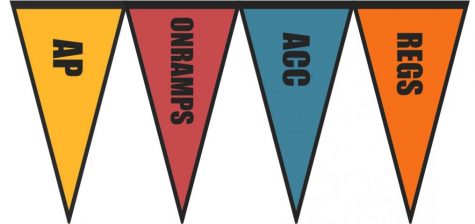

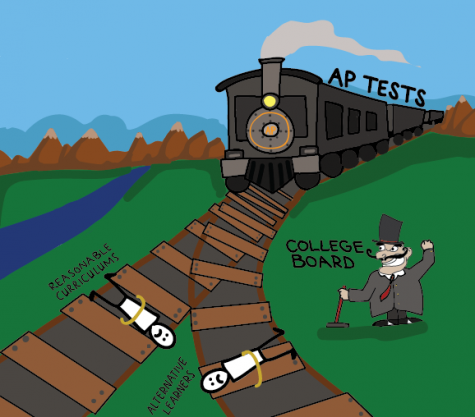
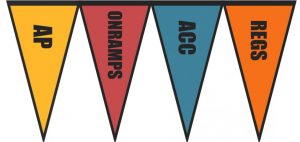

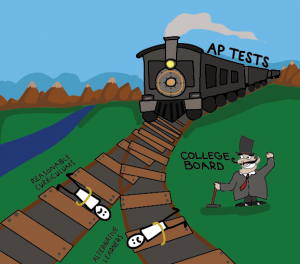




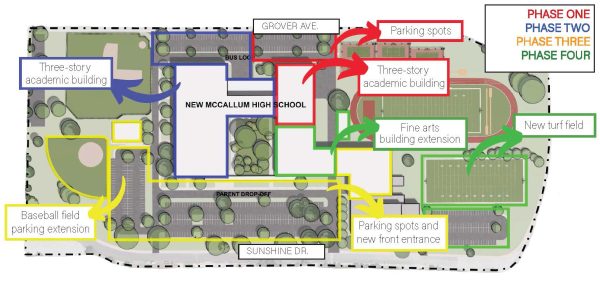
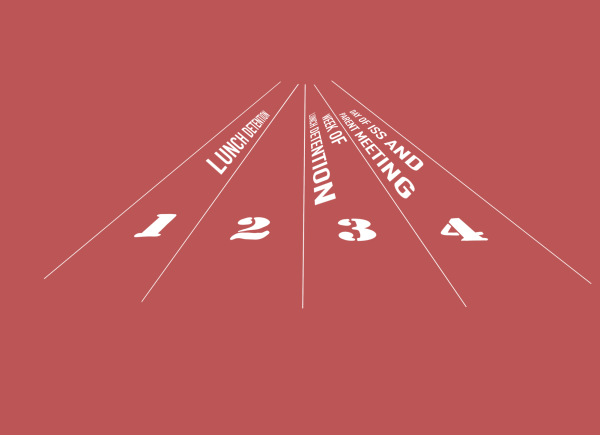






Alex G • Dec 13, 2019 at 10:15 am
I really enjoyed this article. As a freshman who is expecting to take an AP class next year, its really good to see an inside view on the benefits of AP classes.